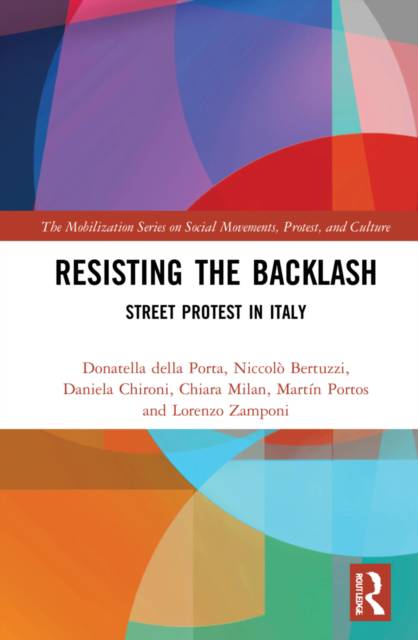
- Retrait gratuit dans votre magasin Club
- 7.000.000 titres dans notre catalogue
- Payer en toute sécurité
- Toujours un magasin près de chez vous
- Retrait gratuit dans votre magasin Club
- 7.000.0000 titres dans notre catalogue
- Payer en toute sécurité
- Toujours un magasin près de chez vous
Resisting the Backlash
Street Protest in Italy
Donatella Della Porta, Niccolò Bertuzzi, Daniela Chironi, Chiara Milan, Martín Portos, Lorenzo ZamponiDescription
Drawing interview material, together with extensive data from the authors' original social movement database, this book examines the development of social movements in resistance to perceived political "regression" and a growing right-wing backlash. With a focus on Italy and the reaction to increasing inequalities and welfare state retrenchment policies, it examines opposition to the government and state authorities on a number of issues. Triangulating different types of data, it sheds light on the ability of citizens to organise in the streets and addresses crucial matters in social movement research, including the significance to political mobilization of grievances, class, gender and generational differences, as well as considering the network dynamics of micro-mobilization, visions of Europe, and the role of interactions with major political institutions. As such, it will appeal to scholars of sociology and politics with interests in social movements and political mobilization.
Spécifications
Parties prenantes
- Auteur(s) :
- Editeur:
Contenu
- Nombre de pages :
- 168
- Langue:
- Anglais
- Collection :
Caractéristiques
- EAN:
- 9781032180519
- Date de parution :
- 29-04-22
- Format:
- Livre relié
- Format numérique:
- Genaaid
- Dimensions :
- 156 mm x 234 mm
- Poids :
- 430 g

Les avis
Nous publions uniquement les avis qui respectent les conditions requises. Consultez nos conditions pour les avis.






